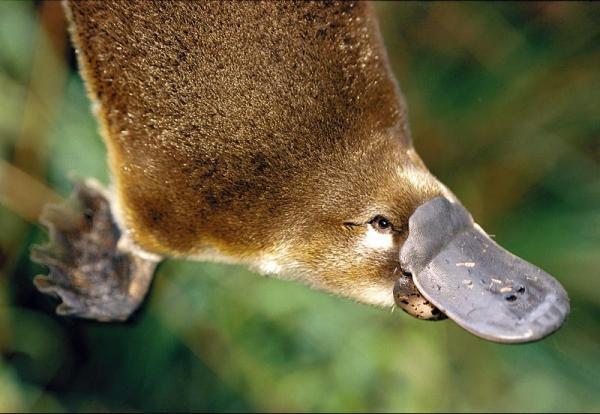The duckling mollusks help to understand ovarian cancer
Researchers from the Royal Adelaide Hospital and University of Adelaide believe our oldest mammalian relatives can help us better understand ovarian cancer .
University of Adelaide geneticist Dr. Frank Grutzer said the platypus DNA diagram showed an interesting relationship between their sex chromosomes and some of the DNA sequences found in chamber cancer. eggs in humans.
Dr. Grutnzer said: 'We have identified the sex chromosome DNA of a DNA-like speculum that is affected by ovarian cancer as well as other reproductive diseases, such as infertility. male'.
 Speculum moss is helping Australian researchers better understand ovarian cancer. (Photo: Nicole Duplaix)
Speculum moss is helping Australian researchers better understand ovarian cancer. (Photo: Nicole Duplaix)
'Cancer often involves changing large amounts of DNA, and it is often difficult to identify which DNA is important in the development of the disease. Comparing with animals with distant relatives like the duckling otters helps us identify important DNA sequences that have been preserved through evolution for millions of years. '
'We are very excited about the fact that the genome of the speculum has given us a new direction in studying ovarian cancer at the molecular level.'
Working with Dr. Grutzner is Professor Martin Oehler, cancer researcher specializing in ovarian cancer treatment at the Royal Adelaide Hospital.
Professor Oehler said: 'We hope this study will one day lead to the development of an early detection experiment and more effective treatments for ovarian cancer.'
'Ovarian cancer is the gynecological cancer that has the highest death rate and is the sixth most common cause of death among Australian women.'
Both Dr. Oehler and Dr. Grutzner said the application of this study is not limited to ovarian cancer, and they are trying to understand some of the other diseases.
- Watch out for ovarian cancer when you experience digestive disorders
- Opportunities for ovarian cancer patients
- Signs of ovarian cancer are often confused
- Unexpected signs of ovarian cancer warning
- Warning signs of ovarian cancer
- New breakthrough in the treatment of ovarian cancer
- Similarities between breast and ovarian cancer
- Detection of genes that cause ovarian cancer
- Aspirin helps reduce the risk of ovarian cancer
- IVF is easy for ovarian cancer
- Early detection of ovarian cancer thanks to regular blood tests
- Find out how to detect ovarian cancer early
 Why is Australia the country with the highest cancer rate in the world while Vietnam ranks 100th?
Why is Australia the country with the highest cancer rate in the world while Vietnam ranks 100th? New drug causes cancer to 'starve'
New drug causes cancer to 'starve' Common cancers in men
Common cancers in men America's incredible discovery: The most feared cancer cell is love
America's incredible discovery: The most feared cancer cell is love